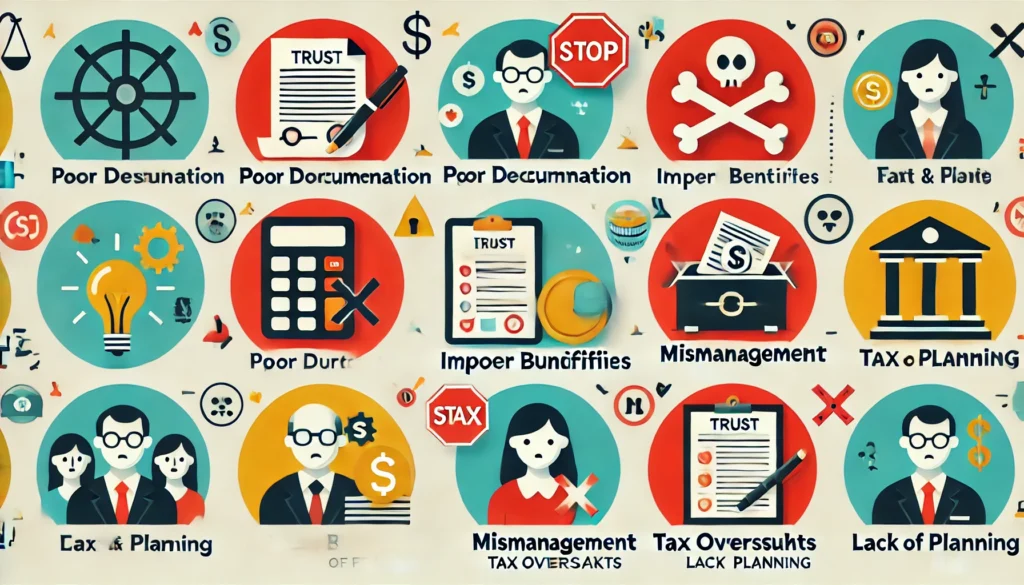Imagine you’ve spent a lifetime building your wealth—your home, savings, investments. Now, you want to ensure that these assets are managed wisely and passed on to your loved ones according to your wishes. Enter the world of trusts, a fundamental tool in financial planning that offers control, protection, and peace of mind.

What Exactly Is a Trust?
At its core, a trust is a legal arrangement where you (the grantor) transfer assets to a trustee. This trustee holds and manages the assets on behalf of your chosen beneficiaries. Think of it as creating a personal rulebook for how your assets should be handled, both during your lifetime and after.
Why Consider a Trust?
Trusts aren’t just for the ultra-wealthy; they offer several benefits that can be advantageous for many:
- Avoiding Probate: Assets placed in a trust typically bypass the probate process, allowing for a quicker and more private distribution to beneficiaries. This means your loved ones can access their inheritance without the delays and public scrutiny that often accompany probate proceedings.
- Tax Efficiency: Certain types of trusts can help minimize estate taxes, preserving more of your wealth for your heirs. By strategically placing assets in a trust, you may reduce the taxable value of your estate, potentially saving significant amounts in taxes.
- Control Over Asset Distribution: Trusts allow you to specify how and when your assets are distributed. For example, you can stipulate that beneficiaries receive funds at certain ages or milestones, ensuring that the wealth is used responsibly.
- Protection from Creditors: Assets held in certain trusts may be shielded from creditors, offering a layer of security against unforeseen financial liabilities. This can be particularly beneficial for beneficiaries who may face legal judgments or have debt issues.
- Planning for Incapacity: A trust can designate a trustee to manage your affairs if you become unable to do so, ensuring that your financial matters are handled according to your wishes without the need for court intervention.
Types of Trusts: Finding the Right Fit
Trusts come in various forms, each tailored to different needs and objectives:
- Revocable Living Trusts: These allow you to retain control over your assets during your lifetime and specify how they should be distributed upon your death. You can alter or revoke them as your circumstances change.
- Irrevocable Trusts: Once established, these cannot be easily changed or revoked. They offer potential tax benefits and asset protection but require you to relinquish control over the assets placed within them.
- Charitable Trusts: Designed for those who wish to leave a legacy by donating to charitable organizations, these trusts can provide tax benefits while supporting causes you care about.
- Special Needs Trusts: These ensure that beneficiaries with disabilities receive financial support without jeopardizing their eligibility for government assistance programs.
Common Missteps to Avoid

While trusts offer numerous advantages, it’s crucial to navigate them carefully:
- Unclear Terms: Ambiguities in the trust document can lead to disputes among beneficiaries and trustees. Ensure that your trust is drafted with clear, precise language to reflect your intentions accurately.
- Choosing the Wrong Trustee: The trustee plays a pivotal role in managing the trust’s assets and executing its terms. Select someone who is not only trustworthy but also capable of handling the responsibilities involved. In some cases, appointing a professional or corporate trustee may be advisable.
- Neglecting Updates: Life circumstances change—marriages, divorces, births, and deaths can all impact your estate plan. Regularly review and update your trust to ensure it aligns with your current wishes and the prevailing laws.
- Failing to Fund the Trust: Simply creating a trust isn’t enough; you must transfer assets into it. Failure to do so means those assets may still be subject to probate, undermining one of the primary benefits of having a trust.
Is a Trust Right for You?
Determining whether a trust fits into your financial plan depends on your individual circumstances, goals, and the complexity of your estate. Consulting with financial advisors and estate planning professionals can help you navigate the options and tailor a strategy that best protects your assets and fulfills your wishes.
In the intricate tapestry of financial planning, trusts serve as versatile threads that can weave together your intentions, provide for your loved ones, and secure your legacy. By understanding and utilizing trusts effectively, you take a proactive step toward comprehensive wealth management and peace of mind.